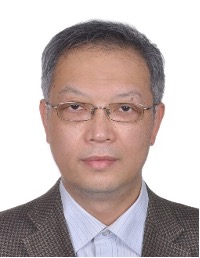The high-throughput Preparation and Characterization on the Corrosion Behaviors of Gradient Al-Cr Complex Coatings on the Novel Co-Al-W Based Superalloy
Jiangbo Sha*, Yan Li, Xiuyun Zhao
Beihang University, Beijing, 100191, China
ABSTRACT: The high-throughput
preparation and high-throughput
characterization on the
anti-oxidation and -corrosion performance of gradient coatings is one of
the most important issues of the genetic engineering. In order to improve the
oxidation and corrosion resistance of the new Co-Al-W based superalloy, the Al-Cr
coating with composition gradients was high-throughputly prepared by using
multi-arc ion plating technology. Then, the gradient Al-Cr coating was rapidly and
high-throughputly corroded at high temperature and the corrosion behaviors were
discussed. In the gradient Al-Cr coating, Al content gradually decreased from
75at.% to 15at.% from the upper to the bottom of the substrate (Fig. 1a), while
the Cr element increased from 25at.% to 85at.% (Fig. 1b). With decrease of Al
content or increase of the Cr content the phase constitution of the gradient
Al-Cr coating changed from Al80Cr20 and Al17Cr9 to Al8Cr5 and α-Cr. High-throughputly
corroded at 1000°C
for 30 min reveals that the corroded layer consisted of out-layer (Al2O3+Cr2O3),
inter-diffusing layer (Fig. 2a) and un-corroded Al-Cr coatings (Fig. 2d), while
the inter-diffusing layer was identified to be mixture of CoAl (Fig. 2b) and
Co3W (Fig. 2c). Thus, a high-throughput preparation and characterization on the
gradient Al-Cr coatings has been conducted.

Figure 1. Composition maps of Al-Cr coatings Figure 2. Structure of corroded coatings
Keywords: Genetic engineering, Gradient Al-Cr coatings; high-throughput preparation
and characterization

Jiangbo Sha has completed his PhD from Xian Jiaotong University and Postdoctoral Study from National Institute of Materials Science (NIMS, Japan). He is now a Professor with School of Materials Science and Engineering, Beihang University. He has published more than 80 papers in reputed journals. (This work was supported by the National Key Research and Development Program of China ( 2017YFB0702902).